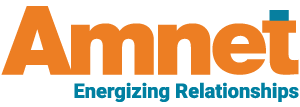In 2025, state laws will have become a major influence on how public schools choose and use K–12 textbooks. As education becomes part of the political scene, there’s increased focus on what materials are being used in classrooms.
Legislative Oversight in Curriculum Decisions
In 2025, the textbook adoption process in K–12 education will be significantly influenced by state legislation. State laws often dictate how instructional materials are selected, leading to diverse classroom practices across states. The states of Texas, Florida, and Tennessee are among 19 US states that handle textbook choices using a centralized board review system. Several other states give their local school districts the independence to choose textbooks, so curricula differ among regions.
New laws recently passed have widened this gap. In 2025, nearly 150 education-related bills were filed in 32 states, most hoping to change the curriculum and textbook material. Under House Bill 1605, the Texas education system started using the “Bluebonnet Learning” curriculum, which includes Bible references in some elementary reading material. Although the state gives financial help to districts that use these materials, the decision has generated discussions about remaining impartial and the material being taught.
Because of these laws, K–12 textbook publishers, educational publishing services, and instructional designers must quickly adjust their materials to match each state’s expectations. Mississippi’s Department of Education has called for bids for textbooks for the 2024–2025 school year, pointing out that the materials should be based on the latest state learning guidelines. For this reason, educational content developers must react quickly and appropriately to new policy developments.
Increased Costs and Delayed Adoption
Adapting textbooks to meet varied state requirements complicates production, increases costs, and delays adoption timelines. Each state may have distinct curriculum standards, political or cultural considerations, and compliance mandates such as alignment with new legislation or state board preferences. To deal with these changes, publishers have to produce updated editions quickly. Publishers are now using skilled copy editors and proofreaders to handle these issues and ensure their books suit the rules of each state.
Professional proofreading services and editing support help ensure the facts are accurate and style is consistent, along with flagging content requiring attention. By catching errors early and aligning language with evolving academic and legal expectations, they significantly reduce costly revision cycles. Additionally, an education publishing company may now integrate these services into digital workflow systems that allow for quicker turnaround and more efficient version control across state editions, an increasingly critical factor in staying competitive in the K–12 educational market.
Looking Ahead
In 2025, textbook adoption is not just an academic concern; it is a legislative matter that impacts educators, publishers, and students alike. As legislation continues to shape what students learn, the need for expert educational publishing services and responsive educational content development will only grow. Publishers need to adjust their content to reflect changing state guidelines, ensuring it stays accurate, suitable for different age groups, and mindful of diverse perspectives.
To keep learning materials effective and approved for use in classrooms, it’s important for everyone involved to support flexible processes, with thorough editing, expert reviews, and accessibility checks that help maintain quality and relevance across all K–12 schools. Partnering with experienced professionals is the best way to develop a K–12 curriculum. Amnet is a specialist in K–12 content development, and our developers deliver content that aligns with the current trends in the eLearning industry. Our syllabi, lesson plans, and course content maps ensure an enriching experience for both students and teachers. Click to connect with us and transform your academic offerings.
Sources
- https://excelinedinaction.org/2025/02/12/state-actions-update-2025-k-12-education-bills-surge-in-32-states/.
- https://tea.texas.gov/academics/instructional-materials/house-bill-1605/oer-imra-faqs.pdf.



